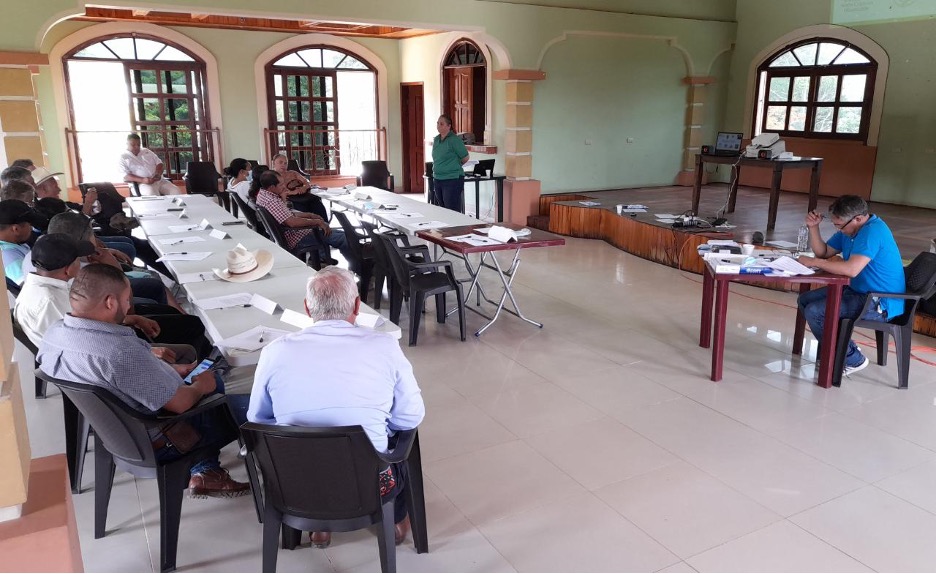Human decision-making
(Discrete Choice Experiments)
Subproject leader: Peter Schuhmann
The willingness of landowners to adopt sustainable coffee production practices is essential for the realization of improvements in environmental quality and human wellbeing. An a priori understanding of the factors that contribute to the decision to adopt sustainable farm practices will help policy makers identify and design incentive mechanisms to facilitate the transition toward broad scale sustainable production and will provide critical links between human behavior and natural systems

Focus group meeting with current DAI farmers.
To gain insights into the relative importance of factors that affect the decision to adopt sustainable coffee production practices, we will conduct a choice experiment (CE) as part of the questionnaire. Grounded in Lancasterian preference theory and used in multiple disciplines, choice experiments are a method for understanding human preferences and decision-making in the context of multi-attribute alternatives. CE data are obtained from surveys that guide respondents through a series of hypothetical choices described in terms of different levels of attributes. Modeling choices as a function of attributes can be used to generate estimates of how changes in attribute levels affect the probability of a given choice.

Focus group meeting with current DAI farmers.
To develop this methodology, we conducted workshops and a CE survey. Small focus groups were assembled to assist with the determination of appropriate attributes and levels and the CE will be pretested on 12-15 farmers and modified where necessary for improved exposition, clarity, accuracy and flow. Final CE surveys were administered through face-to-face interviews administered to a random sample of 600 farm families. Respondents were presented with a series of scenarios involving the choice between adopting IOC practices and using traditional production methods. Attributes included income from coffee sales, income from sales of carbon, and community characteristics. Attribute levels were centered on current conditions for non-IOC farms. Data will be analyzed using multinomial logit regression of the discrete decisions with respondent characteristics as covariates. Expected outcomes of the CE include an understanding of the influence of marginal changes in economic and community factors on farmer decisions regarding the adoption of IOC practices. This information will serve as the foundation for policy advice regarding interventions that would increase the use of sustainable practices, and the expected impacts on economic viability in the region. To synthesize the findings from this goal we will derive models that estimate probabilities of adopting sustainable practices as a function of quality of life factors and economic and community returns to adopting sustainable practices.